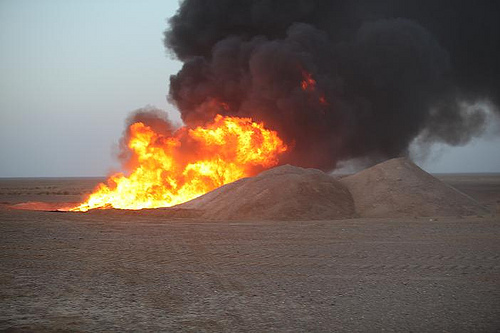WASHINGTON, Aug. 22, 2011 — The United States and China have essential roles to play in solving many of the world’s most pressing challenges, Vice President Joe Biden told a Chinese audience yesterday.
As part of a four-day visit to China, Biden visited Sichuan University in Chengdu, where he spoke to Chinese college students about U.S.-China relations.
Biden first visited that nation in 1979 as a senator.
“It was a very different country then, but what was absolutely clear to me was that China was on the cusp of a remarkable transformation,” he told the students.
A rising China will fuel economic growth and bring to the fore a new partner with whom the United States can meet global challenges, the vice president said.
When President Barack Obama and he took office in 2009, they made the U.S.-China relationship a top priority, Biden said.
“Our presidents have met nine times since then, including very successful state visits in Beijing and Washington, and have spoken numerous times by telephone,” he noted.
The premier forum for communication between United States and Chinese officials is the Strategic and Economic Dialogue, which brings together policymakers from across both governments to discuss issues from trade barriers to climate change, he said.
In May, the two nations also jointly launched the first Strategic Security Dialogue as a channel for civilian and military leaders to discuss sensitive topics, including cyber and maritime security, the vice president said.
To make that dialogue effective, it’s important that the two nations’ military leaders get to know each other, Biden said. Navy Adm. Mike Mullen, chairman of the Joint Chiefs of Staff, and Chief of the General Staff Chen Bingde of the Chinese army have begun that process through n exchange of visits in May and July, he noted.
“The fact is China and the United States face many of the same threats and share many of the same objectives and responsibilities,” Biden said.
Because China and the United States sometimes view threats from different perspectives, the two nations’ senior military leaders should talk “as frequently as our diplomats do,” he said.
The United States is and will remain a Pacific power, the vice president said.
“Over the last 60 years, no country has done more than we have to ensure the stability and security of the Asian-Pacific region,” Biden said. “And I’d respectfully suggest that has been good for China, allowing China to focus on domestic development and to benefit from a growing market.”
America’s focus on the region will only grow in the years to come, as Asia plays an even greater role in the global economy and international affairs, he said.
Biden said the United States and China are working with international partners to counter the threat of nuclear weapons, materials and technology, noting that Chinese President Hu Jintau joined President Barack Obama and other leaders last year at a nuclear security conference.
“Along with 46 other world leaders, President Hu honored us by joining President Obama and me at the Nuclear Security Summit in April of last year, and our nations are now collaborating on a center for excellence to provide nuclear security in China,” Biden said.
During his visit, the vice president told the students, he discussed with Chinese Vice President Xi Jinping, the need for the two nations to focus on “the world’s two primary nuclear proliferating challenges: North Korea and Iran.”
If armed with nuclear weapons on long-range missiles, North Korea and Iran would pose a direct and serious, existential threat to the security of the United States and its allies, Biden said.
“That is why we’ve been working with China and our international partners to maintain peace and stability on the Korean peninsula and to achieve a complete denuclearization of North Korea,” he said. “And it is why as the Iranian government continues its illicit nuclear program, we have worked with a range of partners and international institutions to enact the toughest sanctions that Iran has ever faced.”
The United States will continue to look to China to send a clear message to Iranian leaders through its words and its deeds that Iran must live up to its international obligations, he added.
Other security challenges the United States and China share include Afghanistan, Pakistan and the Sudan, the vice president noted.
“Continuing to develop our security dialogue and cooperation is the surest way to meet these joint challenges,” he said.
Biden repeated for the students a comment he made during the annual Strategic and Economic Dialogue here in May: “For many of the world’s most pressing challenges, it is a simple fact that when the United States and China are not at the table, the solution to the problem is less possible.”
Obama and Biden will continue working to make the nations’ partnership more positive, cooperative and comprehensive in the coming years, he said.
“I hope that my visit can serve as a step toward these goals and toward strengthening that bond,” he added.
Biden later visited Mongolia, and he is now in Japan. His overseas trip concludes later this week.
Source:
U.S. Department of Defense
Office of the Assistant Secretary of Defense (Public Affairs)

 von
von 
